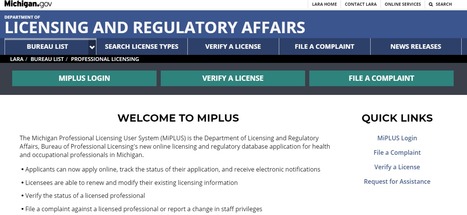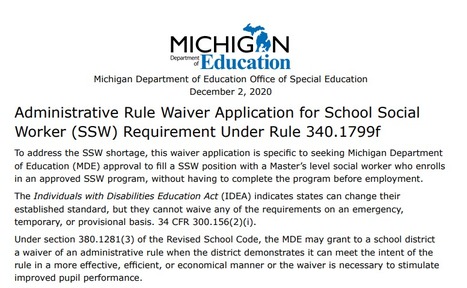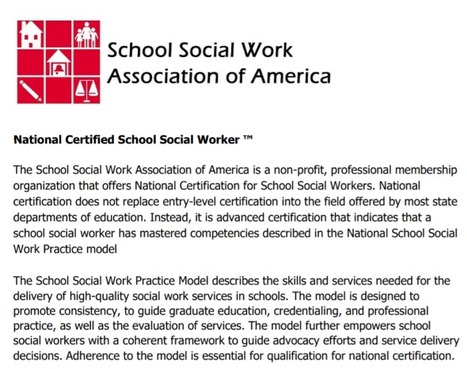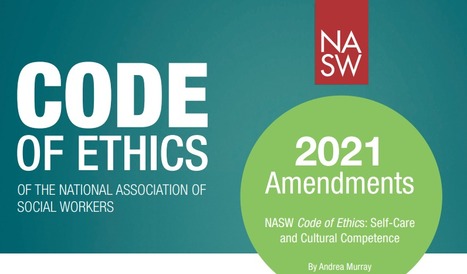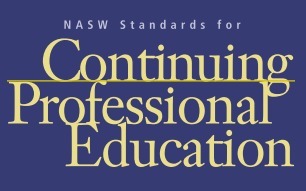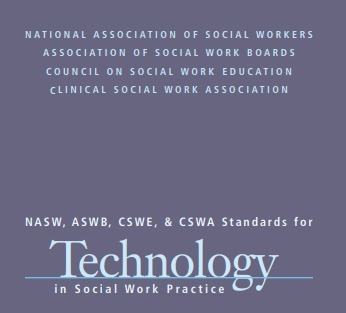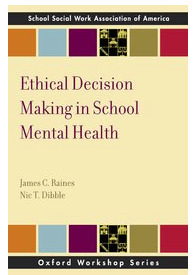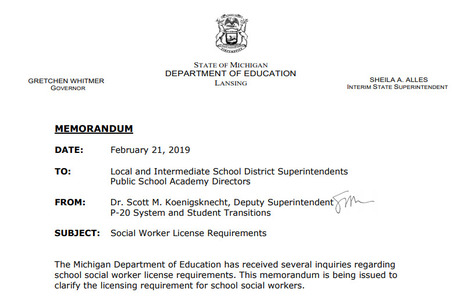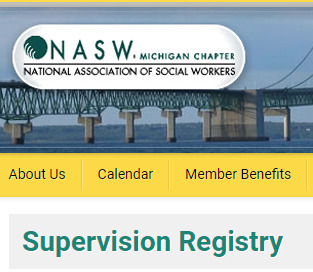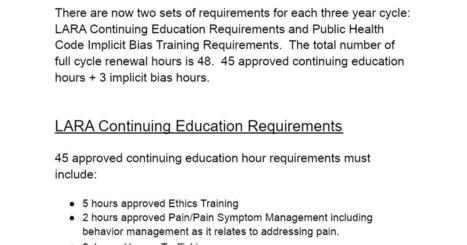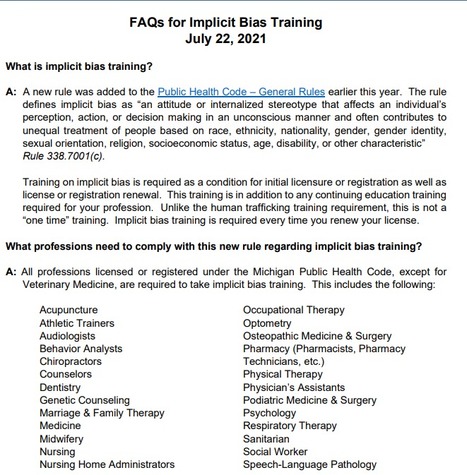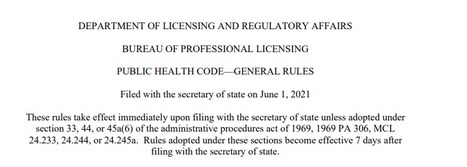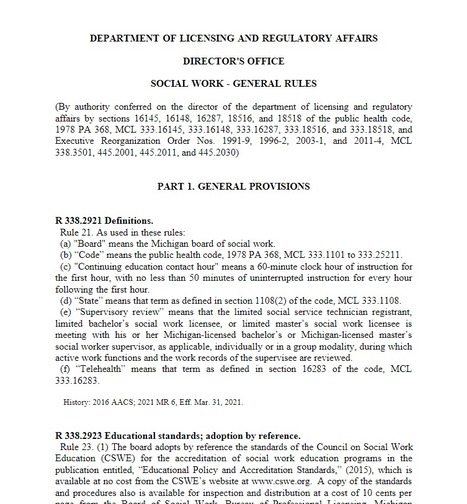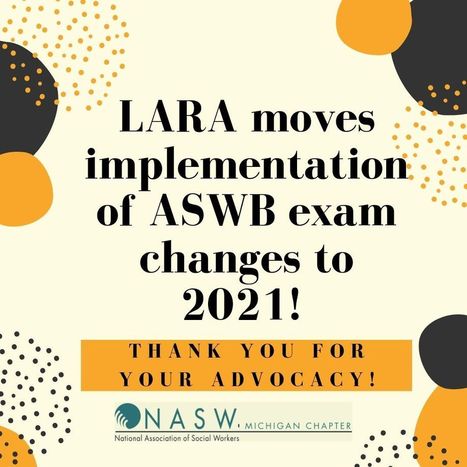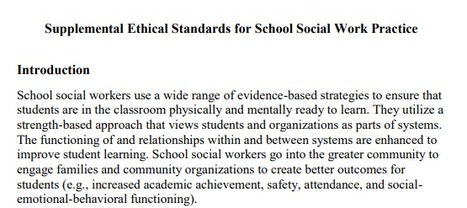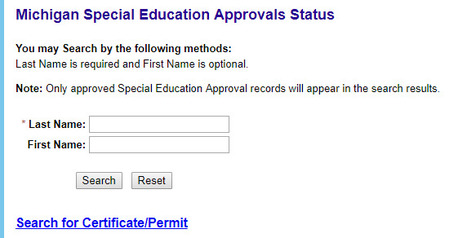 Your new post is loading...
 Your new post is loading...

|
Scooped by
Steve Whitmore
July 13, 2022 7:14 AM
|
This set of rules was uploaded in 1/30/20.

|
Scooped by
Steve Whitmore
September 17, 2021 12:00 PM
|
The Michigan Professional Licensing User System (MiPLUS) is the Department of Licensing and Regulatory Affairs, Bureau of Professional Licensing's new online licensing and regulatory database application for health and occupational professionals in Michigan. Applicants can now apply online, track the status of their application, and receive electronic notifications Licensees are able to renew and modify their existing licensing information Verify the status of a licensed professional File a complaint against a licensed professional or report a change in staff privileges

|
Scooped by
Steve Whitmore
September 15, 2021 12:28 PM
|
To address the SSW shortage, this waiver application is specific to seeking Michigan Department of Education (MDE) approval to fill a SSW position with a Master’s level social worker who enrolls in an approved SSW program, without having to complete the program before employment.

|
Scooped by
Steve Whitmore
July 19, 2021 1:40 PM
|
National Certified School Social Worker ™ (NCSSW) is awarded through SSWAA to identify school social work professionals who have voluntarily sought and obtained an advanced certification that demonstrates mastery of competencies of the National School Social Work Practice Model.

|
Scooped by
Steve Whitmore
June 14, 2021 9:19 AM
|
In 2020, the social work profession was faced with new and unique challenges as frontline responders to both the global COVID-19 pandemic and the racial and social justice crisis, all demanding drastic systemic changes. NASW has risen to the occasion by taking action in real time to address the needs of the profession through social media forums, the development of resources to guide the profession, social and political advocacy efforts, and now amendments to the NASW Code of Ethics. One of the many ways the Association has seized the moment has been by listening to the voices of social work advocates who raised concerns about key elements of ethical social work practice that needed to be included in the NASW Code of Ethics. The NASW’s Code of Ethics is a living document that responds to social change to meet the needs of the profession. While the core values and principles that have historically been the benchmarks of the profession are relatively grounded, there are times when emergent societal changes require clearer language or a different emphasis on integral ethical responsibilities that serve to guide the way forward for social workers. Making an amendment to the NASW Code of Ethics requires a formal review process governed by NASW Bylaws and approval by the Association’s Delegate Assembly. After careful deliberation via the Delegate Assembly review process, two significant amendments were made to the NASW Code of Ethics in 2020 and 2021: the inclusion of self-care language to the Purpose and Ethical Principles sections of the Code and the reinstatement of the term “Cultural Competence” as it relates to social workers’ ethical responsibilities described in standard 1.05 in the NASW Code of Ethics.

|
Scooped by
Steve Whitmore
June 7, 2021 8:08 AM
|
The National Association of Social Workers (NASW) views continuing education as an essential activity for ensuring quality social work services for clients. By consistent participation in educational opportunities beyond the basic, entry-level professional degree, social workers are able to maintain and increase their proficiency in service delivery: New knowledge is acquired, skills are refined, professional attitudes are reinforced, and individual’s lives are changed. Continuing education is a self-directed process, which requires social workers to assume responsibility for their own professional development. However, with the rapid growth of knowledge, coupled with the upsurge in continuing education opportunities for social workers across the country, NASW recognized the need for standards to guide and facilitate social workers’ involvement in continuing education. This document, Standards for Continuing Professional Education, was developed to meet that need. The standards provide guidance to social workers who want to match their continuing education activities with professional expectations. The standards also serve as a resource to assist social workers in the selection and provision of continuing education. In light of these broad purposes, the standards are intended for use by individual practitioners, by providers of continuing education, and by agency administrators who have responsibility for social work staff.

|
Scooped by
Steve Whitmore
May 6, 2021 3:49 PM
|

|
Scooped by
Steve Whitmore
April 8, 2020 8:41 AM
|
Social workers’ use of technology is proliferating. Technology has transformed the nature of social work practice and greatly expanded social workers’ ability to assist people in need. Contemporary social workers can provide services to individual clients by using online counseling, telephone counseling, videoconferencing, self-guided Web-based interventions, electronic social networks, mobile apps, automated tutorials, e-mail, text messages, and a host of other services. Social workers’ use of technology has created new ways to interact and communicate with clients, raising fundamentally new questions about the meaning of the social worker–client relationship. In addition, social workers use various forms of technology to access, gather, and otherwise manage information about clients. Social workers maintain encrypted electronic records, store sensitive information on their smartphones and in the “cloud,” and have the capacity to search for information about clients using Internet search engines. Social workers use technology in creative ways to address compelling social justice issues, organize communities, administer organizations, and develop social policy. Social workers also explore and develop new technologies for practice and disseminate them with colleagues. Technology has also influenced social work education and broadened its reach. Today’s students may take courses online, view prerecorded lectures posted on Internet-based course sites, participate in online social work practice simulations, interact with fellow students enrolled in a course from multiple locations around the world, and listen to podcasts. Social workers have expanded options to satisfy their continuing education requirements by enrolling in live online webinars and attending lectures 8 delivered from remote locations that are transmitted electronically. They may provide and obtain training, supervision, and consultation from distant locations using videoconferencing technology

|
Scooped by
Steve Whitmore
February 20, 2020 7:43 AM
|
The prevalence of human trafficking has reached alarming levels in the United States. In an effort to address this widespread crisis, individuals licensed or registered by the Michigan Department…

|
Scooped by
Steve Whitmore
May 7, 2019 9:23 AM
|
The mission of the social work profession is rooted in a set of core values. These core values, embraced by social workers throughout the profession’s history, are the foundation of social work’s unique purpose and perspective.

|
Scooped by
Steve Whitmore
May 7, 2019 8:48 AM
|
Ethical predicaments are endemic for mental health professionals working in a host setting like schools. New interventions, evolving technologies, and a patchwork of ethical guidelines and legal codes create a constant stream of new ethical dilemmas. Quick answers and simple solutions are rare, but with the seven-stage model presented here, readers will learn to apply an ethical decision-making process that minimizes their liability while better protecting their students.

|
Scooped by
Steve Whitmore
February 22, 2019 11:33 AM
|

|
Scooped by
Steve Whitmore
September 21, 2018 8:00 AM
|
Click here to edit the content
|

|
Scooped by
Steve Whitmore
July 11, 2022 10:09 AM
|
Social Work Licensing Continuing Education Requirements Last Updated: 7.11.22 There are now two sets of requirements for each three year cycle: LARA Continuing Education Requirements and Public Health Code Implicit Bias Training Requirements. The total number of full cycle renewal hours is 48

|
Scooped by
Steve Whitmore
September 17, 2021 11:42 AM
|
A new rule was added to the Public Health Code – General Rules earlier this year. The rule defines implicit bias as “an attitude or internalized stereotype that affects an individual’s perception, action, or decision making in an unconscious manner and often contributes to unequal treatment of people based on race, ethnicity, nationality, gender, gender identity, sexual orientation, religion, socioeconomic status, age, disability, or other characteristic” Rule 338.7001(c). Training on implicit b

|
Scooped by
Steve Whitmore
September 10, 2021 9:51 AM
|
The National Association of Social Workers (NASW) Code of Ethics is the primary ethical guidance for social workers, including school social workers, but social workers may use ethical standards from other related professions for ethical guidance (NASW Code of Ethics, p.3). Additional guidance is provided in the NASW Standards for School Social Work Services

|
Scooped by
Steve Whitmore
July 19, 2021 11:36 AM
|

|
Scooped by
Steve Whitmore
June 7, 2021 10:14 AM
|
Beginning 1 year after promulgation of this rule and for every renewal cycle thereafter, in addition to completing any continuing education required for renewal, an applicant for license or registration renewal under article 15 of the code, MCL 333.16101 to 333.18838, except those licensed under part 188 of the code, MCL 333.18801 to 333.18838, shall have completed a minimum of 1 hour of implicit bias training for each year of the applicant’s license or registration cycle.

|
Scooped by
Steve Whitmore
May 7, 2021 10:06 AM
|
Michigan Rule Updates- effective 3/31/21

|
Scooped by
Steve Whitmore
October 15, 2020 11:34 AM
|
Licensing and Regulatory Affairs - information about the social worker licensing process in Michigan

|
Scooped by
Steve Whitmore
February 20, 2020 7:58 AM
|

|
Scooped by
Steve Whitmore
October 11, 2019 9:41 AM
|

|
Scooped by
Steve Whitmore
May 7, 2019 9:18 AM
|

|
Scooped by
Steve Whitmore
May 7, 2019 7:47 AM
|
School social workers use a wide range of evidence-based strategies to ensure that students are in the classroom physically and mentally ready to learn. They utilize a strength-based approach that views students and organizations as parts of systems. The functioning of and relationships within and between systems are enhanced to improve student learning. School social workers go into the greater community to engage families and community organizations to create better outcomes for students (e.g., increased academic achievement, safety, attendance, and socialemotional-behavioral functioning). The National Association of Social Workers (NASW) Code of Ethics is the primary ethical guidance for social workers, including school social workers, but social workers may use ethical standards from other related professions for ethical guidance (NASW Code of Ethics, p.3). Additional guidance is provided in the NASW Standards for School Social Work Services. The School Social Work Association of America (SSWAA) developed an Ethical Guidelines Series that addresses issues related to school social work practice in host settings, group work, and the privacy of minor students. Other sources that informed the development of these supplemental ethical standards include federal law (Family Educational Rights and Privacy Act, Individuals with Disabilities Education Act, Protection of Pupil Rights Amendment), Principles for Professional Ethics (National Association of School Psychologists, 2010), Ethical Standards for School Counselors (American School Counselor Association, 2010), and Ethical Decision Making in School Mental Health (Raines and Dibble, 2011). These supplemental ethical standards build on the values, principles, and ethical standards articulated in the NASW Code of Ethics. They 1) specifically address issues critical to school social work practice but not addressed in the NASW Code of Ethics, and 2) are in addition to and do not in any way supplant the NASW Code of Ethics. Issues addressed include responsibilities to clients and stakeholders, parent rights and participation, collaborative decision-making, sharing and protecting confidential information, differential treatment of minor students, consent for services, advocacy, knowledge of laws and school district policies, assessment for school-based services, contributions to the profession, and ethical decision making

|
Scooped by
Steve Whitmore
October 2, 2018 11:52 AM
|
Click here to edit the content
|



 Your new post is loading...
Your new post is loading...



